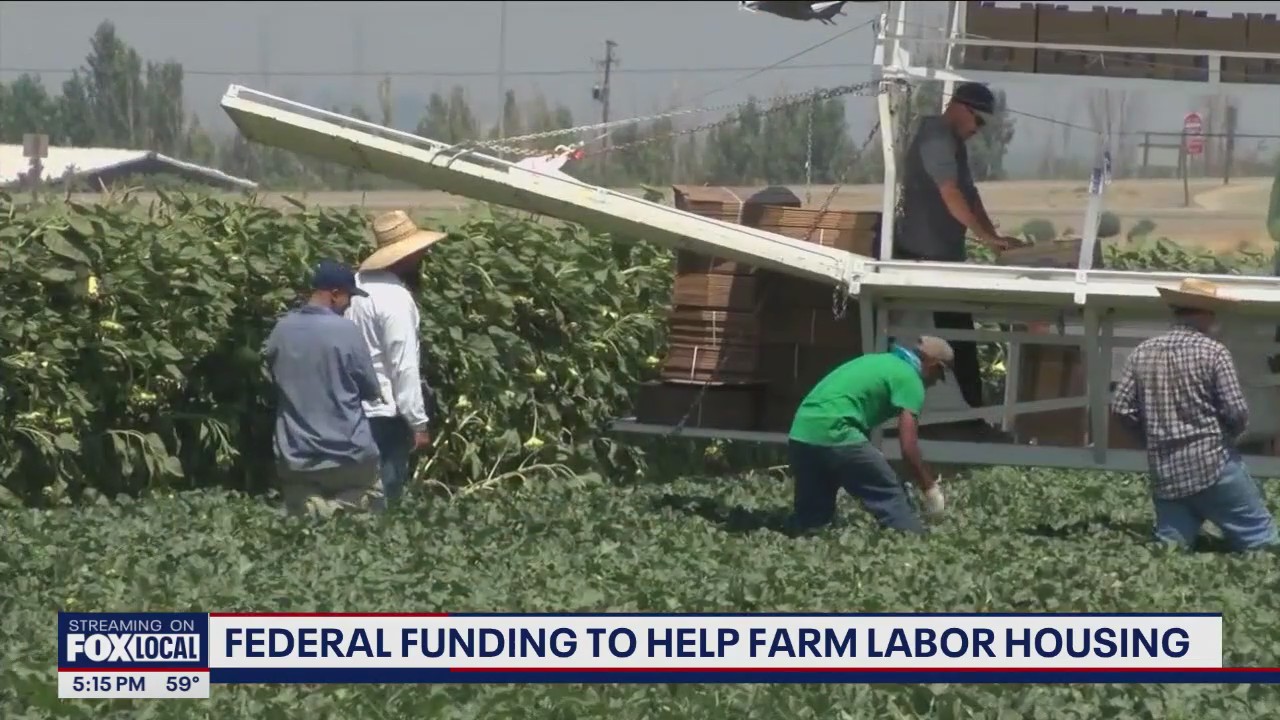Federal funding for farmworker housing aims to keep grocery prices down

Federal funding for farmworker housing aims to keep grocery prices down
New federal funding aims to alleviate the shortage of safe and affordable farm labor housing across the U.S., helping prevent a potential spike in produce prices as well.
If you’ve been to the grocery store recently, you might have started seeing cherries on display. Washington farmworkers are starting to harvest the state's cherry crop, which means those cherries are making their way from the trees, to the store, to your home.
But what if the farmworkers harvesting those crops have trouble finding a home? Most likely, it would significantly impact what makes it on grocery store shelves, which is why new federal funding aims to solve this issue.
"Growers are under a lot of pressure and their biggest cost in a lot of fruit and vegetable crops is labor, so having the available housing in the labor force is critical," said Jon DeVaney, president of the Washington State Tree Fruit Association.
DeVaney tells FOX 13, in smaller, rural areas, a lack of housing is a big problem. Because of this, the United States Department of Agriculture (USDA) announced $48 million to help alleviate the shortage of safe and affordable farm labor housing across the Pacific Northwest and the nation.
"The people who grow our food deserve to have decent housing," said Helen Price Johnson, a Washington State Rural Development Director for the USDA.
Featured
Massive wind farm proposal in Washington state gets new life from Gov. Jay Inslee
Washington Gov. Jay Inslee on Thursday rejected a recommendation to cut a proposal for what would be the state's largest wind farm in half, giving new life to the $1.7 billion project.
The new funds will go toward brand-new units for on-farm housing, as well as off-farm housing.
"Right now, Washington state has about 21 properties for off-farm housing, and this opens up the opportunity to have much more," Price Johnson said. "I hear from people across the state from the Olympic Peninsula to the Palouse about the need for this."
If farmworkers can’t find housing, it could become a larger, growing problem for many. The Washington State Department of Commerce says the agriculture and food manufacturing industry generates more than $21 billion in revenue annually, meaning the state's economy is quite reliant on being the top producer of apples, blueberries, hops, pears, spearmint oil and sweet cherries.
"If you can’t find the labor force for harvesting your crops, you could have a crop failure that year, a huge amount of food waste," DeVaney said.
If it becomes a persistent problem, growers may decide not to grow that crop anymore, and local consumers would end up paying more for certain products in stores.
"Many of us take a lot of reliable systems for granted. You don’t think about the power coming out of your outlet until there’s a storm and the power goes out. You don’t think of a lot of products, especially food products, until their supply is disrupted," DeVaney said. "We need to be aware of the supply chains and the labor force necessary to produce essential products like food and make sure those systems are resilient and we invest in them."
The funding is on a first come, first serve basis. The deadline to apply is July 3rd. You can learn how to apply on the USDA website.
MORE FOX 13 SEATTLE NEWS:
WA DNR predicting a tough fire season: How to minimize the fire danger surrounding your home
Washington's styrofoam ban officially goes into effect
Families of plane crash victims urge DOJ to prosecute Boeing
Seattle's 'Belltown Hellcat' driver facing over $60k in penalties
To get the best local news, weather and sports in Seattle for free, sign up for the daily FOX 13 Seattle newsletter.


